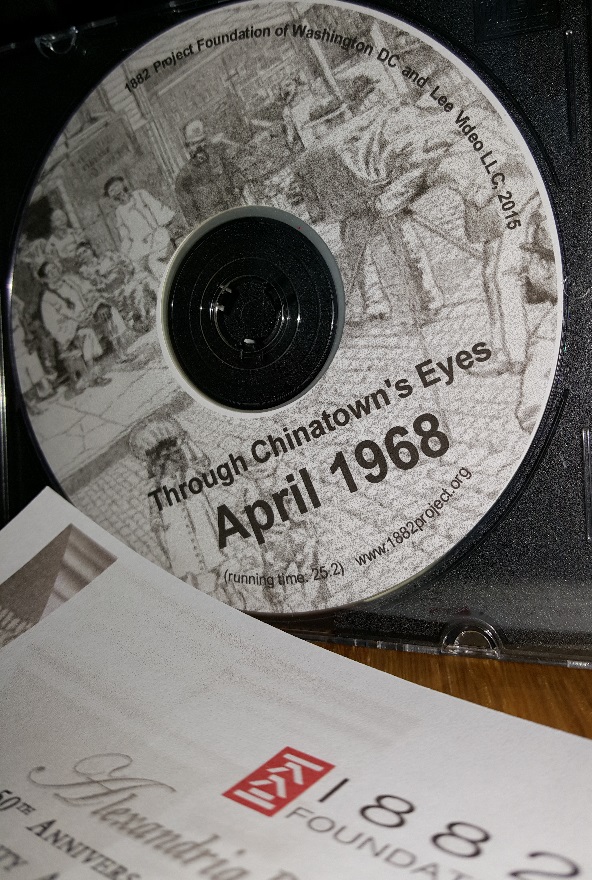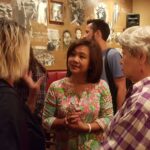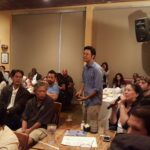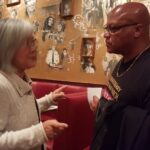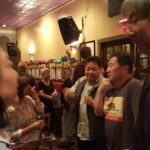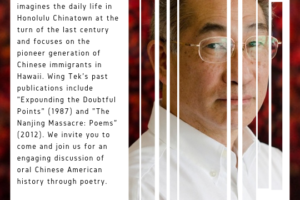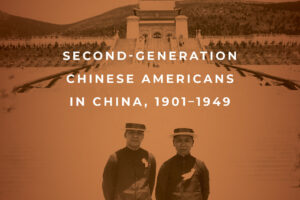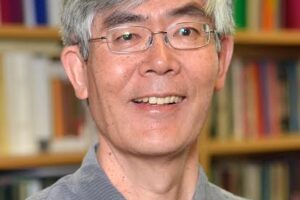April 1968: Understated Intersections of Race and Place
by Easten Law
[Easten Law is a former lecturer in Intercultural Relations at American University in Washington DC. He is now D.C. Commissioner for API Affairs in the DC Mayor’s office and a doctoral student at Georgetown University.]
It was a real privilege moderating the 1882 Foundation screening and discussion of “Through Chinatown Eyes: 1968” at Busboys and Poets in early October. I was truly humbled to hear the stories of my Chinese-American elders. Their witness is vital for all Washingtonians seeking to make sense of the strange phenomenon of D.C.’s Chinatown, where a gleaming archway and neon translations of Western restaurant chains can blind us to the remaining authenticity that lingers. As Washington, D.C., continues to change, these stories become all the more important.
Penny Lee and Lisa Mao’s documentary is a little jewel of a project for its understated yet profoundly inter-sectional angle on a watershed moment in American history. There are lots of different resources that independently address Asia-American identity and history, D.C. history, or the 1968 riots in particular. However, there are few, if any, that address them together in such a way that invites one to make connections between them. This film provides tangible bridges for understanding how the negotiation of Asian-American identity, race relations, and urban dynamics overlap and influence one another. There is a real need for more films of this nature, works that display complexity through diverse voices anchored in a common event, even if that event is experienced in very different ways.
The audience was a wonderfully diverse group – from long time African-American Washingtonians to young Asian-American students and activists new to D.C. The discussion was both inter-generational and interracial. Themes of neighborly kindness, community building, and shared histories of civil rights emerged out of painful, complex memories. For many, this was the very first time they had heard anything about the riots from a Chinese-American perspective. The film encouraged a beautiful dialogue that acknowledged one another’s contributions to civil rights even as it recognized what is still undone.
If you weren’t able to come out to the documentary viewing, let us know and we’ll keep you up to date. We are looking for new venues to show it again in the upcoming months.
If you are a teacher, the 1882 Foundation is happy to provide a copy for educational purposes. At a compact 25 mins, the film allows space for good follow up discussions in the classroom. There is also a rough curriculum available for those seeking ideas on how to teach to the film from an historical lens.
Easten Law facilitated film screenings and community discussions at the Chinese Community Church in Chinatown DC and at Busboys and Poets in Columbia Heights.
Next screening and community discussion is scheduled for May 2016 at the Smithsonian Community Museum. Watch for exact dates and times at our Activities and Events tab, or join our Talk Story mail list at http://bit.ly/TalkStoryList.

